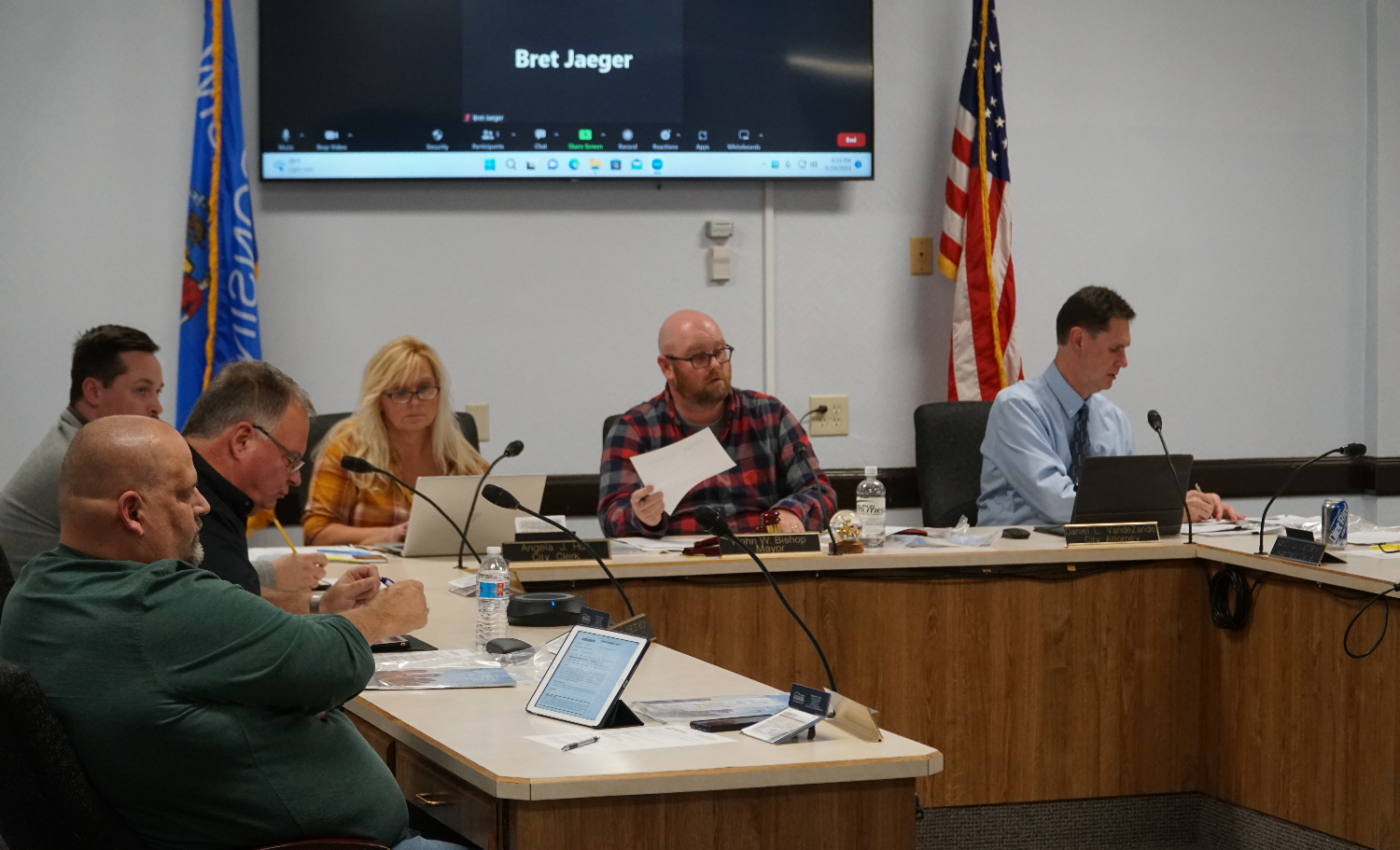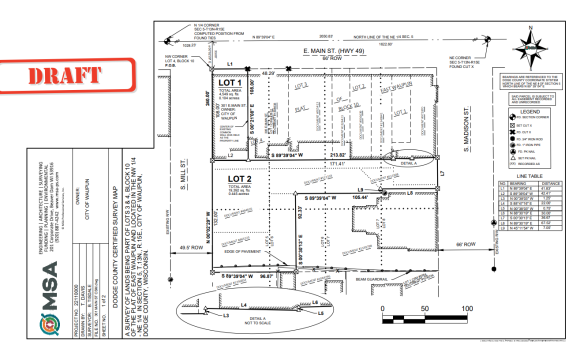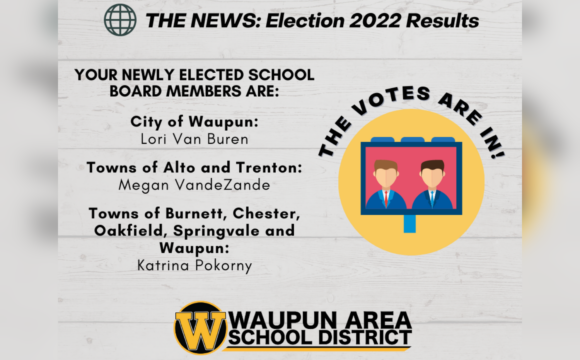WAUPUN — The Waupun City Council discussed revising the City Purchasing Policy to include sections on local preference at the Special Meeting of the Common Council Tuesday evening. This comes after Mayor Bishop threatened to veto the entire 2023 City Budget earlier this month over the purchase of a truck from an out-of-town supplier.
The driving force behind the policy change is over the purchase of a Utilities truck through Ewald based in Oconomowoc, which is able to undercut other vehicle suppliers due to their status as the state supplier, when the City could purchase vehicles through local businesses such as Homan Auto which supports a wide variety of community services and events.
City Administrator Kathy Schlieve presented a draft of the City Purchasing Policy to the Common Council with the proposed local preference policies.
“Staff spends a lot of time trying to uphold the direction in this document, and I want to emphasize how critically important that is to ensuring the integrity of the work we do as well as looking out for the taxpayer,” Schleive said.
Schlieve asked City Attorney Dan VandeZande to expand on the process of creating the proposed policies. He explained that they got in contact with the League of Wisconsin Municipalities about whether any other communities have adopted a similar policy to the local preference proposal. The League referred Waupun to what VandeZande described as the “Madison Policy.”
“They said basically the City of Madison has adopted something like this and they were the only community they were aware of that has adopted local preference policies,” VandeZande said. “They suggested that we look at their system to come up with policies, so what you’re looking at is a reflection of that.”
Shleive continued, “So what Madison has and what we’re proposing in the draft is to introduce a ‘bi-local’ preference to our policy based on what we saw with the City of Madison.”
She stated that the current wording of the draft defined local as an address within Waupun city limits. Madison’s system includes a far more complex process where vendors had to register with the city which maintained a database and publicly accessible map of businesses that qualified for the “local vendor” designation.
Schlieve then outlined the recommended draft changes in Section 1.7 (Purchasing Categories), Section 1.8 (Major Equipment and Vehicle Purchases), and Section 1.9 (Exceptions). The Purchasing Policy draft can be found in the Special Common Council Agenda Packet on the City website.
Section 1.7 of the Purchase Policy lists four categories of purchases that were already in place, based on price of purchase and if it is for Public Works. The primary change to Section 1.7 was the addition of the definition for local preference, noting there was no “ranked” preference and bids would only be awarded to businesses in the City limits under the presented policy draft. An older draft included references to a finance committee, but were removed as the Committee of the Whole currently acts in that role.
Alderman Pete Kaczmarski asked the department heads to give comments about how they’ve proceeded in the past regarding purchases and their opinions on the proposed policy. Utilities Director Steve Brooks and Police Chief Scott Louden both agreed that buying local when possible is preferable to strictly purchasing the lower bid. DPW Director Jeff Daane stated that he found that the state contract through Ewald was always cheaper than local dealerships and that he believes that the City should be responsible stewards of the taxpayers’ money.
Schlieve stressed that the policy still requires bids to be entertained for large dollar purchases. The proposed policy allows for local preference if the local vendor bid is within 1% of the lowest bid.
Alderman Kaczmarski asked the Council to hear his comments about the proposal. He first expressed his concerns about the lack of a dollar cap, as even 1% becomes a great amount of money when it gets into the hundreds of thousands of dollars, proposing that they add a clause capping the percentage at $100,000, or a difference of $1,000.
Alderman Kaczmarski then asked if the “local vendor” designation could be expanded beyond city limits, using Homan Auto in Ripon as an example that would not fall under the current definition. Alderman Westphal pointed out that Ballweg Implement would also not qualify, being a local business but just outside of city limits.
Mayor Bishop reiterated his reasoning for pushing for the local preference policies, saying, “Every dollar that’s spent in the City of Waupun is spent here seven more times before it leaves. So we might pay more to buy something from Homan or SIA, or Balweg, but that dollar is gonna get spent here seven times before it leaves the city. If we buy a vehicle from Oconomowoc the money’s just gone. It didn’t do anything for the local community, it didn’t provide a local job, it didn’t support Celebrate Waupun, it didn’t support the Truck-n-Show, it didn’t support soccer, softball, baseball, football. It’s the local business that pays for all of this.”
Mayor Bishop has been criticized for a potential conflict of interest as a long time employee of Homan Auto. “I freely admit I worked at Homan’s for twenty years and I rent a spot to run my own business, so if someone wants to say I have a conflict I have to own that,” he said. “But that’s not why I’m doing this, I’m not on their payroll anymore. But when I did work there I saw what we did for the community.”
After further discussion, Schlieve reiterated the feelings of the Council that the definition of “local” was to be amended to include businesses outside of city limits but still regional to Waupun.
“As the Council the first responsibility is to the taxpayers, but keep in mind that those vendors are the taxpayers—personal and business—so it’s kind of a win-win,” Alderman Siebers said.
The Administrator’s office will be revising the draft to present the City Council at a future meeting.
Local business leaders Mark Homan, Andy Glewen, Tyler Schultz, and Joel Sterk were also in attendance.










